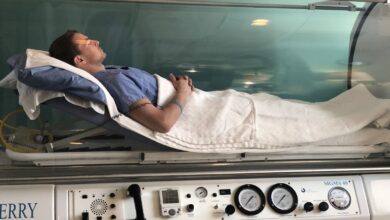Understanding the Role of a PHP Facility in Recovery

Recovery from mental health disorders or addiction is a journey, and the right support system is critical for success. While inpatient and outpatient programs are common treatment options, there’s an alternative that blends elements of both: the PHP facility. A PHP (Partial Hospitalization Program) facility provides a structured, therapeutic environment for those needing more intensive care than outpatient therapy but less than full hospitalization.
But what exactly is a PHP facility, and how does it contribute to recovery? In this blog, we’ll explore the role that PHP facilities play in helping individuals achieve mental health and addiction recovery.
PHP (Partial Hospitalization Program) facilities play a crucial role in the recovery process for individuals battling mental health disorders and addiction. A PHP facility offers an intermediate level of care, bridging the gap between inpatient hospitalization and outpatient therapy. This blog explains the structure, benefits, and purpose of a PHP facility, emphasizing how it supports long-term recovery through comprehensive care. It also answers common FAQs to help people understand how PHP facilities can serve their recovery needs.
What Is a PHP Facility?
A PHP facility offers intensive, structured care for individuals struggling with severe mental health disorders, addiction, or both. Unlike inpatient facilities where patients reside 24/7, a PHP facility allows individuals to receive treatment during the day and return home or to a supportive living environment at night. This setup offers patients the best of both worlds—intensive treatment and the freedom to maintain some degree of independence.
Patients in a PHP facility typically attend sessions for five to seven hours a day, five days a week, engaging in a wide range of therapeutic activities designed to support their recovery. PHP facilities aim to address the underlying causes of mental health or addiction issues while equipping patients with the tools and coping strategies they need for long-term success.
How a PHP Facility Supports Recovery
A PHP facility offers an array of services that cater to the individual needs of each patient. The programs provided in a PHP facility are designed to treat both the symptoms and the root causes of mental health disorders or addiction. Here’s how they play an essential role in recovery:
Comprehensive Treatment Plans
Each patient in a PHP facility undergoes a thorough assessment at the beginning of their treatment. This assessment helps healthcare professionals develop a personalized treatment plan that addresses the individual’s unique challenges and goals. PHP facilities combine individual therapy, group therapy, and other supportive services to ensure that the treatment is holistic and tailored to the patient’s needs.
Structured Environment Without Total Immersion
Unlike inpatient treatment, a PHP facility allows patients to return home or to a supportive living arrangement at the end of the day. This is a crucial aspect of recovery, as it enables individuals to practice the skills and coping strategies they’ve learned in therapy in their daily lives. At the same time, the structured daily routine provides the stability many individuals need during the recovery process.
Multidisciplinary Approach
Recovery often requires a combination of therapeutic interventions, and PHP facilities offer just that. A typical day in a PHP facility might include individual therapy, group sessions, medication management, and alternative therapies such as art or music therapy. This multidisciplinary approach ensures that patients receive comprehensive care that addresses both the mental and physical aspects of recovery.
Family and Community Support
Recovery doesn’t happen in isolation. Many PHP facilities incorporate family therapy or family education into their programs, allowing loved ones to become part of the recovery process. This approach helps patients rebuild relationships and establish a strong support network, which is critical for long-term success. Additionally, PHP facilities foster a sense of community among patients, helping them connect with others who understand their experiences.
Focus on Relapse Prevention
For individuals recovering from addiction, relapse prevention is one of the most critical components of treatment. PHP facilities prioritize teaching patients how to identify triggers, manage cravings, and develop healthy coping strategies to avoid relapse. For those dealing with mental health disorders, relapse prevention focuses on recognizing the early warning signs of a mental health crisis and taking steps to prevent it from escalating.
Who Benefits from a PHP Facility?
A PHP facility is ideal for individuals who need more support than outpatient therapy but do not require the 24-hour supervision of inpatient care. Here are some examples of who might benefit from a PHP facility:
Individuals transitioning from inpatient care: After completing an inpatient program, many people find that stepping down to a PHP facility helps them maintain the momentum of their recovery while slowly reintegrating into their normal routines.
People with severe mental health disorders: Individuals struggling with conditions such as depression, anxiety, PTSD, or bipolar disorder may find that a PHP facility provides the intensive care needed to manage their symptoms and develop healthier patterns of thinking and behavior.
Those battling addiction: For individuals who are recovering from substance use disorders but do not require medical detox, PHP facilities offer the structure and support needed to build a foundation for sobriety.
People with co-occurring disorders: Many individuals with addiction also struggle with mental health disorders. A PHP facility is equipped to treat both conditions simultaneously, providing comprehensive care that addresses all aspects of the patient’s well-being.
The Difference Between PHP and Other Treatment Programs
Understanding how a PHP facility compares to other types of treatment is key to determining whether it’s the right fit for your recovery journey.
Inpatient Programs: Inpatient programs require patients to stay at the facility full-time, receiving round-the-clock care. This type of program is ideal for individuals in crisis or those needing medical supervision during detox. A PHP facility provides a step down from inpatient care, offering similar therapeutic support without the need for full-time residence.
Outpatient Programs: Outpatient programs typically involve therapy sessions a few times a week. These programs are less intensive than PHP and are ideal for individuals who have already made significant progress in their recovery or who need more flexibility in their schedules. A PHP facility offers a higher level of care than standard outpatient programs, making it a good option for those who need more structured support.
Intensive Outpatient Programs (IOP): IOPs are similar to PHPs but usually require fewer hours of therapy per week. A PHP facility is a more intensive option than IOP, offering more hours of care and a higher level of support for those in need.
Why Choose a PHP Facility?
Choosing the right level of care can be overwhelming, especially when dealing with the complexities of mental health or addiction. A PHP facility offers several advantages that make it an attractive option for many individuals:
Intensive, Personalized Care
PHP facilities provide more hands-on, intensive treatment than outpatient programs, making them ideal for individuals who need more support to stabilize their mental health or maintain sobriety.
Flexibility and Independence
One of the biggest advantages of a PHP facility is that patients can still live at home or in a sober living environment. This allows them to apply the skills they learn in therapy to real-life situations while still receiving structured care.
A Holistic Approach to Recovery
PHP facilities are equipped to address both mental health and addiction, which is crucial for individuals struggling with co-occurring disorders. The comprehensive care offered at these facilities ensures that all aspects of recovery are considered.
A Step-Down from Inpatient Care
For individuals who have completed an inpatient program, a PHP facility offers a smoother transition to independent living. The gradual step-down in care helps patients maintain progress and avoid the shock of moving from full-time care to complete independence.
Relapse Prevention and Continued Support
Recovery is an ongoing process, and PHP facilities prioritize relapse prevention by equipping patients with tools to manage their mental health or addiction in the long term. This ongoing support is crucial for sustaining recovery.
FAQs About PHP Facilities
How long do people typically stay in a PHP facility?
The length of stay varies depending on the individual’s needs, but most PHP programs last anywhere from a few weeks to several months.
Do PHP facilities provide medication management?
Yes, most PHP facilities include medication management as part of their treatment plan. Patients have regular check-ins with medical professionals to ensure medications are working effectively.
Is a PHP facility the same as an inpatient program?
No, a PHP facility allows patients to return home at the end of the day, while inpatient programs require full-time residence at the treatment facility.
Can I continue working or going to school while attending a PHP facility?
Some individuals may be able to balance work or school with a PHP program, but it depends on the intensity of the program and the flexibility of the individual’s schedule.
What kind of therapies are offered in a PHP facility?
PHP facilities offer a variety of therapies, including individual therapy, group therapy, family therapy, and alternative therapies such as art, music, or mindfulness practices.
A PHP facility plays a pivotal role in the recovery journey, providing structured, intensive care that helps individuals transition from crisis to stability. Whether you’re dealing with mental health challenges, addiction, or both, a PHP facility can offer the support and treatment necessary to guide you toward long-term recovery.




